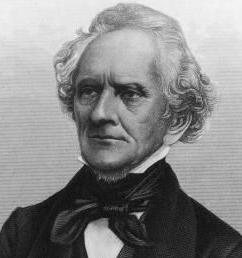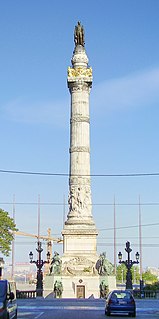
The Governor of the Commonwealth of Virginia serves as the chief executive of the Commonwealth of Virginia for a four-year term. The current holder of the office is Democrat Ralph Northam, who was sworn in on January 13, 2018.

The 1832 United Kingdom general election, the first after the Reform Act, saw the Whigs win a large majority, with the Tories winning less than 30% of the vote.

Elections to the United States House of Representatives for the 27th Congress were held at various dates in different states from July 1840 to November 1841.

Elections to the United States House of Representatives were held in 1832. They were held concurrently with the 1832 presidential election, in which Democrat Andrew Jackson was reelected.

In the United States House of Representatives elections of 1830 the supporters of President Andrew Jackson lost ten seats during his first term, but managed to maintain control of the chamber amidst the growth of two new opposition movements.

In the United States House of Representatives elections in 1828, the Jacksonians soundly took control of the presidency, with Andrew Jackson's victory, and greatly increased their majority in Congress. Outgoing President John Quincy Adams's unpopularity played a major role in the Jacksonian pick-up, as did the perception of the Anti-Jacksonian Party as urban and elitist. Major increases in suffrage also heightened Jacksonian wins, as newly enfranchised voters tended to associate with Jacksonian principles. The Anti-Masonic Party, a single issue faction based on distrust of Freemasonry, became the first third party in American history to garner seats in the House.

The 1830 United Kingdom general election was triggered by the death of King George IV and produced the first parliament of the reign of his successor, William IV. Fought in the aftermath of the Swing Riots, it saw electoral reform become a major election issue. Polling took place in July and August and the Tories won a plurality over the Whigs, but division among Tory MPs allowed Earl Grey to form an effective government and take the question of electoral reform to the country the following year.

The 1820 United Kingdom general election was triggered by the death of King George III and produced the first parliament of the reign of his successor, George IV. It was held shortly after the Radical War in Scotland and the Cato Street Conspiracy. In this atmosphere, the Tories under the Earl of Liverpool were able to win a substantial majority over the Whigs.

The 1806 United Kingdom general election was the election of members to the 3rd Parliament of the United Kingdom. This was the second general election to be held after the Union of Great Britain and Ireland.

The 1807 United Kingdom general election was the third general election to be held after the Union of Great Britain and Ireland.

The 1812 United Kingdom general election was the fourth general election to be held after the Union of Great Britain and Ireland.
Knaresborough was a parliamentary constituency which returned two Members of Parliament (MPs) to the House of Commons of the Parliament of the United Kingdom until 1868, and then one MP until its abolition in 1885.

The Constitution of Uruguay is the supreme law of Uruguay. Its first version was written in 1830 and its last amendment was made in 2004.

The 1830 general election organized the first legislature of the July Monarchy but was meant to organize the sixth legislature of the Bourbon Restoration. The election was held on 5 and 13 July, with the second round held on 19 July.

The 1830 New York gubernatorial election was held from November 1 to 3, 1830, to elect the Governor and Lieutenant Governor of New York.

The 1892 New York state election was held on November 8, 1892, to elect the Chief Judge of the New York Court of Appeals, as well as all members of the New York State Assembly. Besides, three amendments to the State Constitution were proposed: to transfer the settlement of contested elections to the courts, to authorize the sale of the state-owned salt works at Salina, New York, and to increase the number of New York Supreme Court justices by ten.
The 1831 United States Senate election in New York was held on February 1, 1831, by the New York State Legislature to elect a U.S. Senator to represent the State of New York in the United States Senate.
The United States Senate elections of 1830 and 1831 were elections that had Jacksonians gain one seat in the United States Senate from the Anti-Jacksonian coalition, but lose one seat to the short-lived Nullifier Party. By the time Congress first met in December 1831, however, the Jacksonians had a net loss of one seat.

The 1830 United States Senate election in Pennsylvania was held on from December 14 to 16, 1830. William Wilkins was elected by the Pennsylvania General Assembly to the United States Senate.















